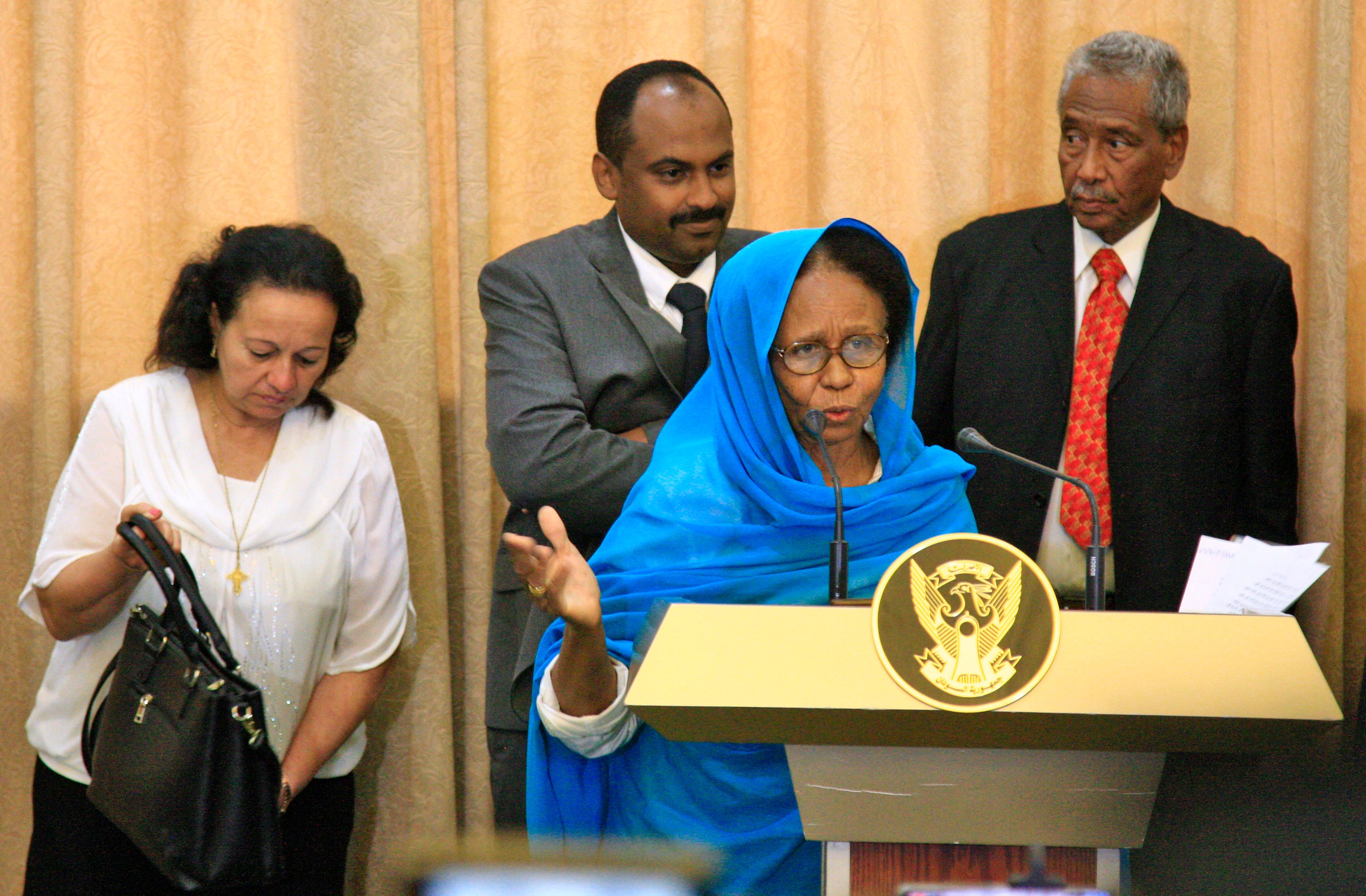Sudan has a new sovereign council, but protesters aren't letting their guards down yet


A free daily email with the biggest news stories of the day – and the best features from TheWeek.com
You are now subscribed
Your newsletter sign-up was successful
Sudan's 39-month transition to elections has begun.
On Tuesday evening, Sudan's ruling military council formally disbanded, and the country's generals and opposition leaders formed a new 11-member joint ruling body, which is made up of six civilians and five soldiers. Among the civilians are a woman, a journalist, and a Coptic Christian judge, who was appointed as the council's 11th member after an agreement by both sides. The members were sworn in on Wednesday, Al Jazeera reports.
The old military council's leader Gen. Abdel Fattah al-Burhan will helm the new council for the first 21 months of the transitional period before the protest leaders appoint a civilian to succeed him for the final 18 months prior to the promised elections.
The Week
Escape your echo chamber. Get the facts behind the news, plus analysis from multiple perspectives.

Sign up for The Week's Free Newsletters
From our morning news briefing to a weekly Good News Newsletter, get the best of The Week delivered directly to your inbox.
From our morning news briefing to a weekly Good News Newsletter, get the best of The Week delivered directly to your inbox.
In addition, economist Abdalla Hamdok is set to be sworn in as Sudan's new prime minister after he was nominated by the main opposition alliance last week. Hamdok is reportedly widely respected and previously served as the deputy executive secretary of the United Nations Economic Commission for Africa. Al Jazeera reports he is expected to focus on fixing Sudan's chronic financial crisis that played a major role in the anti-government protests that culminated in the ousting of former President Omar al-Bashir in April.
The power-sharing agreement inspired widespread celebration in Sudan in recent weeks, but the country's citizens do not plan on sitting idly. "If this council does not meet our aspirations and cannot serve our interests, we will never hesitate to have another revolution," Ramzi al-Taqi, a fruit seller in Khartoum, told Agence France-Presse. "We would topple the council just like we did the former regime."
A free daily email with the biggest news stories of the day – and the best features from TheWeek.com
Tim is a staff writer at The Week and has contributed to Bedford and Bowery and The New York Transatlantic. He is a graduate of Occidental College and NYU's journalism school. Tim enjoys writing about baseball, Europe, and extinct megafauna. He lives in New York City.
-
 The EU’s war on fast fashion
The EU’s war on fast fashionIn the Spotlight Bloc launches investigation into Shein over sale of weapons and ‘childlike’ sex dolls, alongside efforts to tax e-commerce giants and combat textile waste
-
 How to Get to Heaven from Belfast: a ‘highly entertaining ride’
How to Get to Heaven from Belfast: a ‘highly entertaining ride’The Week Recommends Mystery-comedy from the creator of Derry Girls should be ‘your new binge-watch’
-
 The 8 best TV shows of the 1960s
The 8 best TV shows of the 1960sThe standout shows of this decade take viewers from outer space to the Wild West
-
 Nobody seems surprised Wagner's Prigozhin died under suspicious circumstances
Nobody seems surprised Wagner's Prigozhin died under suspicious circumstancesSpeed Read
-
 Western mountain climbers allegedly left Pakistani porter to die on K2
Western mountain climbers allegedly left Pakistani porter to die on K2Speed Read
-
 'Circular saw blades' divide controversial Rio Grande buoys installed by Texas governor
'Circular saw blades' divide controversial Rio Grande buoys installed by Texas governorSpeed Read
-
 Los Angeles city workers stage 1-day walkout over labor conditions
Los Angeles city workers stage 1-day walkout over labor conditionsSpeed Read
-
 Mega Millions jackpot climbs to an estimated $1.55 billion
Mega Millions jackpot climbs to an estimated $1.55 billionSpeed Read
-
 Bangladesh dealing with worst dengue fever outbreak on record
Bangladesh dealing with worst dengue fever outbreak on recordSpeed Read
-
 Glacial outburst flooding in Juneau destroys homes
Glacial outburst flooding in Juneau destroys homesSpeed Read
-
 Scotland seeking 'monster hunters' to search for fabled Loch Ness creature
Scotland seeking 'monster hunters' to search for fabled Loch Ness creatureSpeed Read
